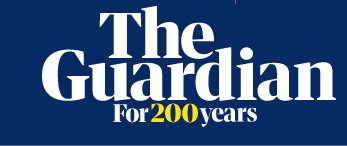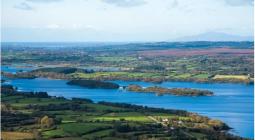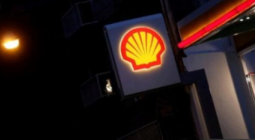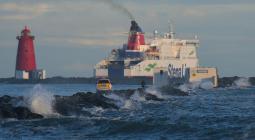Sir Jeffrey Donaldson resigns as DUP leader after sexual offence charges
Donaldson has stepped down after being charged over ‘allegations of a historical nature’, party says
Sir Jeffrey Donaldson has resigned as leader of the Democratic Unionist party after being charged with sexual offences, throwing Northern Irish politics into turmoil.
At an emergency meeting, the party suspended the membership of Donaldson – who is to appear in court next month – and appointed its deputy leader, Gavin Robinson, as interim leader.
A DUP statement said: “The party chairman has received a letter from Sir Jeffrey Donaldson MP confirming that he has been charged with allegations of an historical nature and indicating that he is stepping down as leader of the Democratic Unionist party with immediate effect.
“In accordance with the party rules, the party officers have suspended Mr Donaldson from membership, pending the outcome of a judicial process.”
The Lagan Valley MP, 61, deleted his X, Instagram and LinkedIn accounts and the party removed his image from its website.
Police issued a statement saying a 61-year-old man had been charged on Thursday with “non-recent sexual offences” and that a 57-year-old woman had been charged with aiding and abetting additional offences. They are to appear before Newry magistrates court in County Down on 24 April.
The abrupt end of Donaldson’s leadership stunned Northern Ireland and will jolt the British and Irish governments.
Robinson said he and other party leaders learned of the charges on Thursday night. “It’s been a devastating revelation and has caused tremendous shock,” he told Sky News.
“But we’re a party and individuals that believe in justice. We have faith in our criminal justice system. And so in the coming days and months, I think it’s important that none of us say anything or act in any way that would seek to prejudice what is now an ongoing criminal investigation.”
Donaldson had served three years as DUP leader and recently bolstered his authority by agreeing a deal with Downing Street that revived the Stormont executive and assembly. He had been expected to lead his party into the general election.
The Ulster Unionist party leader, Doug Beattie, said: “Although the circumstances are of concern and in the public interest, we are mindful that this is now a criminal investigation.”
Donaldson, who was knighted by the late queen in 2016, remains an MP but will be under pressure to step down, creating a potential byelection headache for the DUP which would risk it losing Lagan Valley to Alliance, according to Jon Tonge, a University of Liverpool politics professor and co-author of a book on the DUP.
The party was likely to make Robinson, a Donaldson ally who supported Stormont’s restoration, the permanent leader even though his Belfast East seat was also under threat, said Tonge.
As a Westminster MP Donaldson holds no post in the Northern Ireland executive, which is led by Sinn Féin’s Michelle O’Neill as first minister and the DUP’s Emma Little-Pengelly as deputy first minister.
His departure was likely to rattle but not collapse Stormont, said Tonge. “It adds to the precariousness because the architect of the deal is now out of the political game. But the DUP knows it could be disastrous to pull out.”
Donaldson had a reputation as a unionist hardliner and soft-spoken pragmatist, which earned grudging respect in London, Dublin and Washington. Born into a Presbyterian family in the County Down fishing village of Kilkeel, he served in the Ulster Defence Regiment and became a full-time political activist from the age of 18.
In the 1980s he ran the constituency office of Enoch Powell, the former Conservative MP who had defected to the Ulster Unionist party (UUP), and then worked for the then UUP leader, James Molyneaux.
In 1997 Donaldson, a married father of two and socially conservative Orange Order member, inherited Molyneaux’s seat in Lagan Valley, just outside Belfast, and had held it since. He opposed the 1998 Good Friday agreement, seeing it as a sellout to the IRA, and in 2003 joined the DUP.
Polished media performances softened Donaldson’s image and he supported the DUP’s eventual acceptance of the Good Friday agreement. He also backed the party’s support for Brexit.
Controversy about trading arrangements between Northern Ireland and Great Britain fractured the party and toppled two leaders, Arlene Foster and Edwin Poots, in 2021, leaving Donaldson to fill the vacuum.
He withdrew the DUP from power-sharing in 2022, collapsing Stormont. Critics accused him of destabilising Northern Ireland but the move rallied the party’s base and persuaded London to soften the Irish Sea border, leading to Stormont’s revival in February.
Cover photo: Donaldson had been expected to lead his party into the next general election. Photograph: Charles McQuillan/Getty Images






